Collagen Powder Expiry | Shelf Life | Storage Tips | Expired Collagen | Safe Disposal | High-Quality Collagen
Louis's takeaways:
Yes, collagen powder does expire. Most collagen products have a shelf life of 1–2 years when stored correctly. Expired collagen may lose its potency, develop unpleasant smells, or show signs of spoilage like clumping or discoloration.
Table of Contents:
- Does collagen powder expire?
- What Is The Science Behind Collagen Powder Degradation Over Time?
- Why Have Collagen Gained Such Popularity These Days?
- The Shelf Life Of Collagen- Factors That Affect The Shelf Life Of Collagen
- What Happens When Collagen Powder Expires?
- How do you store collagen powder to extend its shelf life?
- Is It Safe To Use Collagen Beyond The Expiry Date?
- Tips To Choose High-Quality Collagen
- Wrapping up

Does collagen powder expire?
Yes, collagen powder does expire. Most collagen products have a shelf life of 1-2 years when stored correctly. Expired collagen may lose its potency, develop unpleasant smells, or show signs of spoilage like clumping or discoloration.
Collagen supplements offer numerous potential benefits like improved skin elasticity, joint health, and overall well-being. However, many consumers wonder about the longevity of these products and whether they expire. Knowing the life cycle of collagen supplements is essential for making informed choices about their use.
Collagen, a vital protein in our bodies, naturally decreases with age, leading to a surge in supplement usage as people seek to counteract these effects. However, like any supplement, collagen has a shelf life that can influence storage conditions and packaging factors.
In this article, we'll learn how collagen supplements are produced, the best practices for storage, and signs that indicate when they may no longer be effective. By the end, you'll have a more precise knowledge of maximizing the benefits of your collagen supplements while ensuring you're consuming them safely.
SUMMARY:
Collagen powder expires in 1-2 years if not stored properly. Expired collagen may lose potency, smell bad, or clump.
What Is The Science Behind Collagen Powder Degradation Over Time?
Collagen powder degrades over time due to heat, moisture, and oxygen exposure. This process breaks down the protein structure, reducing its effectiveness.
Key factors affecting collagen degradation:
- Oxidation: Oxygen exposure causes oxidative stress, leading to protein breakdown.
- Moisture: High humidity can promote hydrolysis, weakening collagen peptides.
- Heat and Light: Long exposure to heat or direct sunlight accelerates molecular degradation.
Manufacturers often use hydrolyzed collagen, which is more stable and dissolves easily in liquids. However, improper storage can still lead to clumping, loss of potency, and changes in texture.
To maintain its quality, keep collagen supplement in a cool, dry place sans humidity. Sealed packaging helps minimize oxygen exposure. When stored correctly, collagen powder remains effective for up to two years. Always check expiration dates and look for signs of spoilage, such as discoloration or an off smell.
Why Have Collagen Gained Such Popularity These Days?
Collagen has surged in popularity recently, becoming a staple in wellness routines and beauty regimens. But what’s driving this trend?
Health Benefits
One of the main reasons for collagen's rise is its wide range of health benefits. Collagen improves skin elasticity, reduces wrinkles, and supports joint health. As people become more health-conscious, they seek natural solutions to improve their well-being.
Beauty and Aesthetics
In the beauty industry, collagen is often hailed as a fountain of youth. Many skincare products now include collagen, appealing to consumers eager for glowing skin. The desire for a youthful appearance fuels the demand for topical applications and supplements.
Holistic Wellness Trends
The trend towards holistic wellness also plays a significant role. As more individuals prioritize natural and functional foods, collagen has become a versatile ingredient. It is easy to include in your diet through powders, drinks, or snacks.

SUMMARY:
Collagen powder degrades over time due to heat, moisture, and oxygen, reducing its effectiveness. Its popularity has grown for skin, joint, and overall wellness benefits, fueled by beauty trends and holistic health awareness.
The Shelf Life Of Collagen
Knowing the shelf life of collagen supplements is crucial for ensuring their effectiveness and safety. Several factors influence how long these products maintain their quality and potency.
Factors That Affect The Shelf Life Of Collagen
The following are some of the factors that can affect the shelf life of collagen supplements in the long run:
Storage Conditions
The way collagen supplements are stored plays a significant role in their longevity. Heat, humidity, and direct sunlight can dimnish the protein, reducing its effectiveness. Collagen needs to be stored in cool, dry place away from light to maintain its integrity.
Packaging
The packaging of collagen supplements also impacts their shelf life. Airtight containers can protect against moisture and air exposure, leading to oxidation and spoilage. Look for products with high-quality, resealable packaging that helps preserve freshness.
Form of Collagen
The specific form of collagen—whether powder, liquid, or capsule—can affect its stability. Generally, powdered collagen has a longer shelf life than liquids, which may contain preservatives or additives that can degrade over time.
Additives and Preservatives
Some collagen products have additional ingredients that can influence their shelf life. Natural preservatives may extend longevity, while artificial additives can sometimes compromise quality. Always check labels for information on added ingredients.
SUMMARY:
Collagen’s shelf life depends on storage, packaging, form, and added ingredients. Proper storage in airtight containers helps maintain potency and prevent spoilage.
Shelf Life of Collagen Powder
Collagen powder has a relatively long shelf life, but its quality can degrade if not stored properly. Factors like moisture, heat, and air exposure can affect its potency, texture, and overall shelf life. Understanding how long collagen powder lasts and recognizing signs of expiration can help you get the most out of your supplement. Below is a breakdown of its shelf life and how to keep it fresh.
Unopened Collagen Powder
Unopened collagen powder can last 2–3 years without losing effectiveness when kept in a sealed container. Manufacturers design packaging to prevent exposure to oxygen and moisture, which helps maintain stability. Store it in a cool, dry place, away from sunlight and humidity, to extend its shelf life. Avoid keeping it in the kitchen or bathroom, as it has higher temperature fluctuations and moisture levels. Always check the expiration date before use, as long-term storage can lead to gradual degradation, even if the packaging remains intact.
Opened Collagen Powder
Once opened, collagen powder is more vulnerable to air, moisture, and contaminants. However, storing in an airtight container in a dry, fabulous location can remain effective for 1–2 years. Keeping the lid tightly sealed prevents oxidation and clumping, preserving the powder’s quality. Avoid using wet spoons, as moisture can accelerate spoilage. If you transfer the powder to another container, choose an airtight seal and store it away from heat sources like stoves or windows. Proper storage ensures you continue receiving the benefits of collagen without a decline in potency.
Signs of Expiration
Expired collagen powder may show visible and sensory changes. If you notice clumping, it could indicate moisture exposure, leading to bacterial growth. A yellow or darker color suggests oxidation, affecting the powder’s quality. A bad or rancid smell means the protein has broken down, making it unsafe to consume. Always inspect the texture, color, and scent before use. If any of these signs are present, discard the product immediately. While collagen powder generally has a long shelf life, proper storage, and regular checks help ensure you consume a fresh, effective supplement.
SUMMARY:
Collagen powder lasts 2–3 years unopened and 1–2 years after opening if stored properly in a cool, dry place. Signs of expiration include clumping, discoloration, or a bad smell, indicating it’s no longer safe to use
What Happens When Collagen Powder Expires?
When collagen powder expires, it may become less effective and develop an off-putting smell, taste, or texture. Expired collagen might also show visible signs of spoilage, such as clumping or mold, and should not be consumed.
Identifying expired collagen supplements is essential to ensure you’re getting the best benefits. Here are critical indicators to watch for:
Rancidity
A rotten smell is one of the most noticeable signs of expired collagen. If the product has developed an off-putting odor, it’s likely gone bad. Rancidity occurs when the fats in the collagen degrade, leading to unpleasant scents and tastes. If you notice any strange or sour aromas, it's best to discard the product.
Bacterial and Fungal Growth
Check for any visible mold or unusual discoloration. If you see any specks or changes in color, this could indicate bacterial or fungal growth, making the supplement unsafe to consume. Always inspect your collagen for any abnormal appearance before use.
Loss of Potency
Expired collagen may also lose its effectiveness. Over time, the active compounds can degrade, leading to diminished results. If your usual dosage no longer provides the expected benefits, it might be a sign that the collagen is past its prime.
Fading Additives
Finally, if your collagen supplement contains added flavors, colors, or nutrients, a noticeable fading or change in these additives may indicate that the product is no longer fresh. If you notice a lack of vibrancy, it's time to consider replacing it.

SUMMARY:
Expired collagen powder may develop a bad smell, clumping, mold, or discoloration, making it unsafe to consume. It also loses potency and added nutrients, reducing its effectiveness and benefits.
How do you store collagen powder to extend its shelf life?
Extend the life of your collagen powder by practicing the following:
- Keep it in a stable environment with consistent temperature.
- Always use a clean, dry scoop to prevent contamination.
- Avoid storing collagen powder in bathrooms or kitchens, where humidity levels are higher.
To maximize the shelf life of your collagen supplements and ensure they remain effective until their expiration date, follow these practical tips:
Proper Storage
Store your collagen in a cool, dry place, away from direct sunlight and heat sources. Humidity and temperature fluctuations can accelerate degradation, so avoid locations like kitchens or bathrooms.
Airtight Containers
Opt for collagen products that come in airtight, resealable containers. This reduce exposure to air and moisture, which can lead to oxidation and spoilage. If your collagen comes in a non-airtight package, consider transferring it to a glass jar with a tight seal.
Mind the Scoop
Always use a clean, dry utensil when scooping out collagen powder. This prevents contamination from moisture or bacteria, which can compromise the product’s quality.
Monitor Expiration Dates
Check the expiration dates on your collagen supplements regularly and rotate your stock, using older products first. This practice ensures you’re consuming the most potent and effective product.
Avoid Temperature Fluctuations
Keep collagen away from places that experience frequent temperature changes, such as near stoves or windows. Stable conditions help maintain its integrity.
Disposing of Rancid Collagen The Right Way
Proper disposal of rancid collagen is essential for safety and environmental responsibility. If you’ve determined that your collagen supplements have gone wrong—evidenced by off smells, discoloration, or visible mold—here’s how to dispose of them correctly:
- Seal and Contain: Place the rancid collagen in a sealed plastic bag or container. This prevents any odors from escaping and keeps them contained during disposal.
- Check Local Guidelines: Some regions have specific disposal guidelines for supplements and expired products. Check your local waste management rules to ensure compliance.
- Trash Disposal: Rancid collagen can usually be disposed of in your regular trash. However, to avoid attracting pests, ensure it's securely bagged.
- Avoid Flushing: Never flush collagen down the toilet or sink, as it can lead to plumbing issues.
By disposing of rancid collagen responsibly, you contribute to a cleaner environment and ensure that you maintain safe practices in your home.
SUMMARY:
Store collagen powder in a cool, dry place using airtight containers and clean utensils to prevent spoilage. Dispose of rancid collagen safely in sealed bags, following local waste guidelines—never flush it down the drain.
Is It Safe To Use Collagen Beyond The Expiry Date?

No, it’s not recommended to consume expired collagen powder. It may have lost its potency and could pose health risks due to potential bacterial or fungal growth. Always check expiration dates and discard products if they show signs of spoilage.
While some products may remain effective for a short period past the date, their potency can diminish, and safety may be compromised. Expired collagen can develop rancidity, lose its beneficial properties, and potentially harbor harmful bacteria or mold. Consuming such products may not provide the desired health benefits and could pose health risks. To ensure safety and efficacy, it’s best to stick to the expiration date and replace expired supplements with fresh products. Prioritizing quality gives the best results from your collagen intake.
Personal Anecdotes: Using Expired Collagen
Collagen supplements are popular for supporting skin, joints, and overall health, but using expired powder can lead to unexpected issues. The following anecdotes come from personal experiences and stories shared by friends who have used collagen regularly. As health-conscious individuals, we always aim to get the most from our supplements, but sometimes mistakes happen—like overlooking expiration dates or improper storage. These real-life experiences highlight what can go wrong when using expired collagen and why checking for freshness before consumption is essential.
Stomach Issues After Expired Collagen
A friend once used collagen powder sitting in her pantry for over two years. She didn’t notice anything unusual at first, but after mixing it into her smoothie, she felt bloated and had mild stomach cramps. Later, she checked the container and realized it smelled slightly off. She figured it was the culprit since expired collagen can break down and develop bacteria if exposed to moisture. After that experience, she continuously checks for signs of spoilage before using collagen.
Clumpy, Bad-Tasting Collagen
I once tried adding collagen to my coffee without realizing it had expired. Instead of dissolving smoothly, it formed sticky clumps with a strange, almost sour taste. Checking the container, I noticed the powder had turned slightly yellow. I ended up throwing it away and learned the hard way that proper storage is key. I always keep my collagen in an airtight container to maintain freshness
SUMMARY:
It’s not safe to use expired collagen powder as it may lose potency, develop bacteria or mold, and cause health issues. Personal stories reveal expired collagen can lead to stomach discomfort, clumping, and bad taste.
Tips To Choose High-Quality Collagen
Quality is paramount to ensure effectiveness and safety. Here are essential tips to help you make an informed choice:
- Source of Collagen- Look for collagen sourced from reputable sources. Marine collagen, derived from fish, is often considered superior for skin benefits, while bovine collagen is excellent for joint health. Verify that the source is sustainable and free from contaminants.
- Type of Collagen- Familiarize yourself with the different types of collagen—Types I, II, and III are the most common. Type I is excellent for the skin, Type II is beneficial for joints, and Type III supports skin and blood vessels. Choose a type that aligns with your health goals.
- Hydrolyzed Collagen- Opt for hydrolyzed collagen, as this form is broken down into smaller peptides, making it easier for your body to absorb and utilize effectively.
- Third-Party Testing- Select brands that undergo third-party testing for purity and potency. This ensures that the product is free from harmful additives and accurately labeled.
- Ingredients List- Check for minimal additives and preservatives. High-quality collagen should have a simple ingredient list and be free from artificial flavors, colors, and fillers.

Wrapping up
Incorporating collagen supplements offer numerous benefits, from improved skin elasticity to joint health. Knowing how to choose high-quality collagen and recognizing signs of expiration are essential for maximizing these benefits. You can ensure you consume effective and safe products by following the guidelines discussed.
For premium collagen options, check out BioOptimal's range of high-quality supplements. Our products are sourced from sustainable origins, undergo rigorous testing, and are designed to support your health goals. Know the difference with BioOptimal today—your journey to optimal wellness starts here!
FAQs
1. What is the lifespan of collagen?
Collagen supplements generally have a lifespan of 24 months. However, this depends on storage conditions, packaging, and any added ingredients that may degrade faster.
2. Can collagen powder go bad?
Yes, collagen powder can go bad if exposed to moisture, heat, or light. Signs of bad collagen include:
- A sour or off smell.
- A clumpy, sticky, or wet texture.
- Changes in color, such as yellowing or discoloration.
3. What is the best way to store collagen powder?
To extend the shelf life of collagen powder, follow these tips:
- Store in a cool, dry place: Keep collagen away from direct sunlight, heat, and humidity.
- Use airtight containers: If the original packaging isn’t resealable, transfer the powder to a sealed container to prevent moisture exposure.
- Avoid refrigeration: Refrigeration can introduce moisture, which may spoil the product.
4. What happens to your body when you take collagen powder every day?
Daily collagen intake can support:
- Skin health: Improved elasticity and hydration.
- Joint support: Reduced discomfort and increased mobility.
- Hair and nail strength: Enhanced growth and durability.
5. What are the first signs that collagen is working?
The first signs include:
- Smoother, more hydrated skin.
- Improved joint flexibility.
- Stronger nails and reduced hair breakage.
Visible results may appear after a few weeks to a couple of months, depending on your dosage and individual response.
6. How Long Does Collagen Powder Last?
Unopened collagen powder lasts 2–3 years if stored properly in a cool, dry place. Once opened, it stays fresh for 1–2 years when kept in an airtight container. However, moisture, heat, and air exposure can degrade its quality over time, reducing effectiveness and altering its texture and taste.
7. Is It Safe to Consume Expired Collagen Powder?
Consuming expired collagen powder isn’t always safe. While it may not be immediately harmful, degraded protein and bacterial growth from moisture exposure can cause stomach discomfort. Always check for signs of spoilage, such as clumping, discoloration, or a bad smell. When in doubt, discard it to avoid potential health risks.
8. How to Store Collagen Powder for Maximum Shelf Life?
Store collagen powder away from sunlight, heat, and humidity in a cold and dry place. Keep it in its original sealed container or an airtight jar to prevent moisture and oxidation. Avoid using wet spoons, and never leave the lid open for long. Proper storage helps maintain freshness and potency for longer.
9. Can I Still Use Expired Collagen Powder?
If the collagen powder shows no signs of spoilage—clumping, discoloration, or an off smell—it may still be usable. However, its effectiveness may be reduced due to protein breakdown. If unsure, it’s best to discard expired collagen rather than risk consuming degraded or potentially contaminated powder.
10. Will Expired Collagen Powder Make Me Sick?
Expired collagen powder can cause stomach discomfort if it has gone bad, especially if it was exposed to moisture, bacteria, or mold. Signs of spoilage include a terrible odor, clumping, or an unusual taste. While mildly expired collagen might not always make you sick, avoiding the risk is best.
11. What Happens If I Take Old Collagen?
Using old collagen powder might reduce effectiveness, meaning fewer benefits for skin, joints, and overall health. If it has degraded, it could taste bad or cause digestive issues like bloating or stomach cramps. Always check its condition before use to ensure safety and potency.

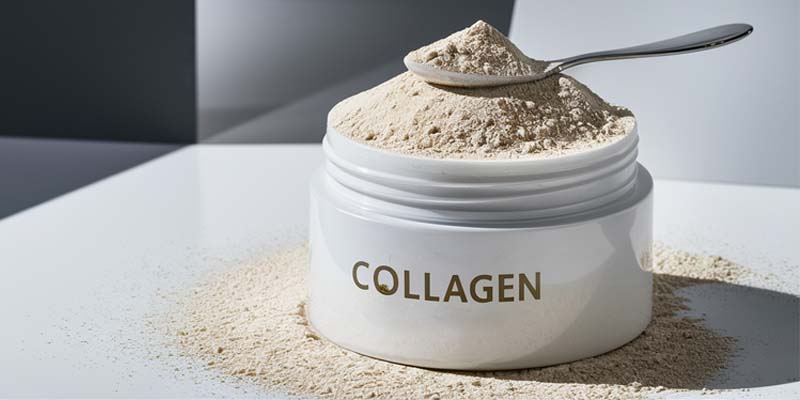
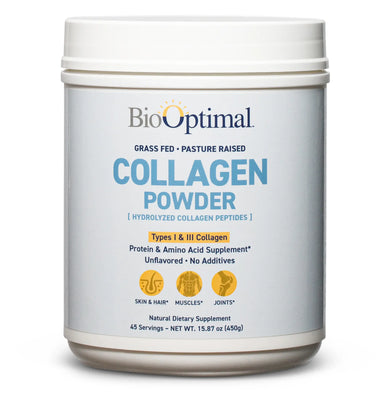
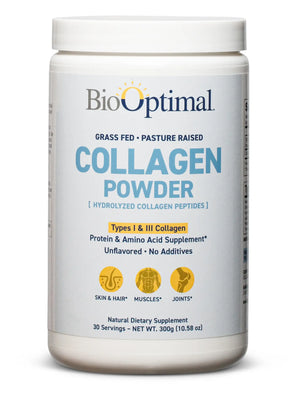
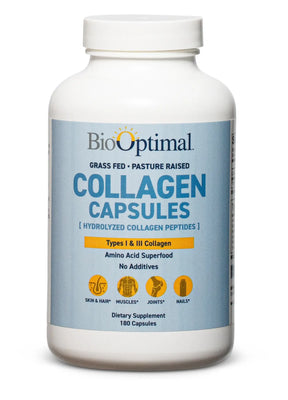
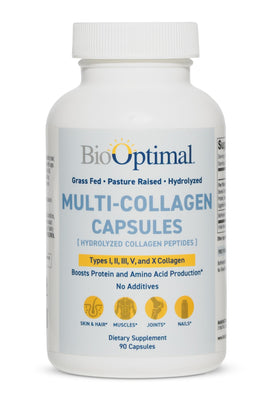

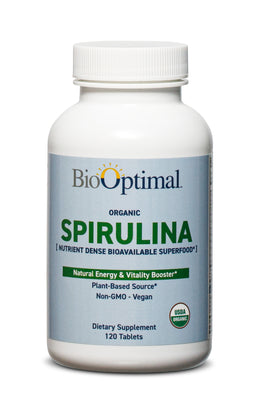
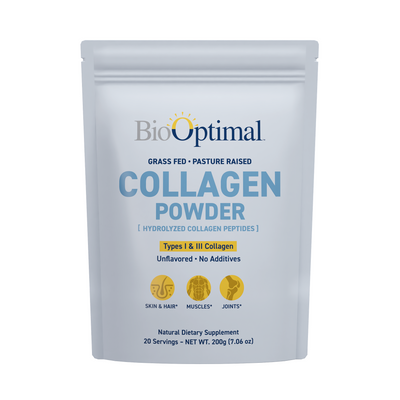

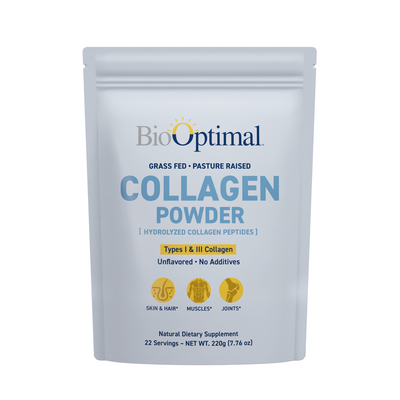
1 comment
Excellent article about collagen powder expired. Thanks, mate